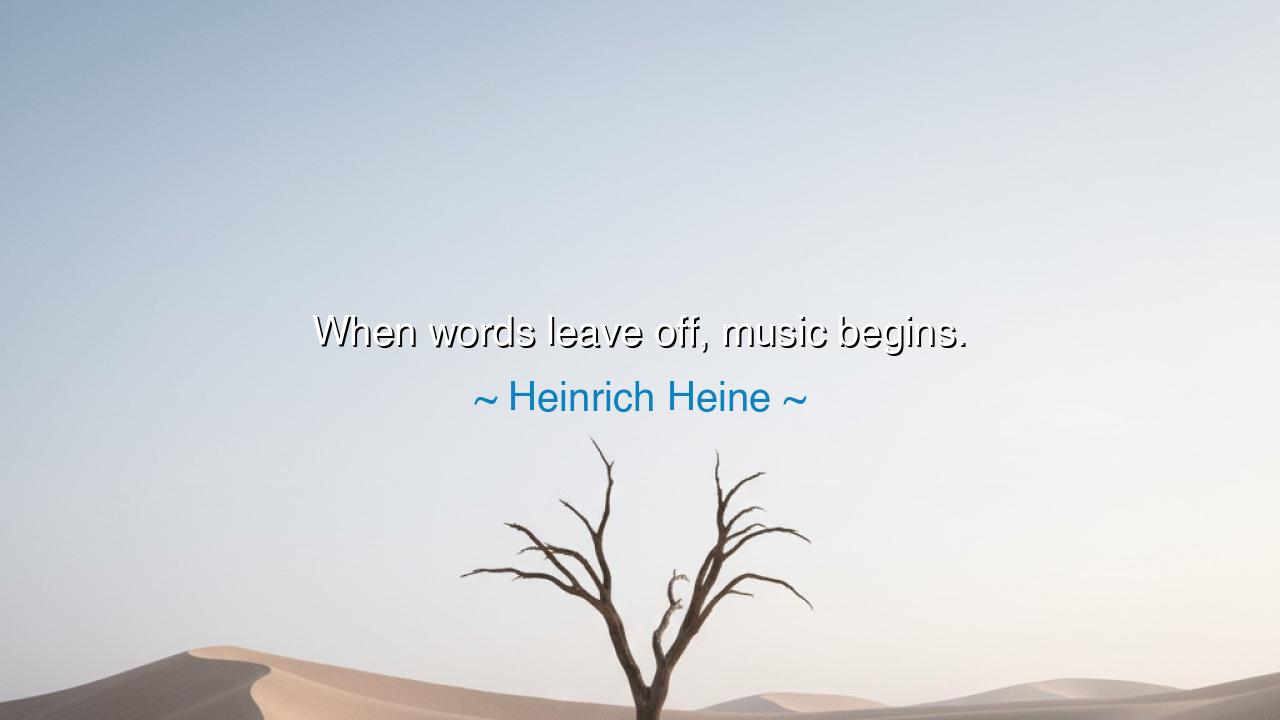
When words leave off, music begins.






"When words leave off, music begins." So spoke Heinrich Heine, the poet of Germany, and in his words we find a vision of the sacred place where human speech falters, where language grows frail and powerless, and yet the soul must still cry out. For there are depths of the heart too vast for syllables, too fiery for plain utterance. At that threshold, music rises, not as a servant of words, but as a sovereign voice beyond them.
O Children of the Future, understand this mystery: words are bound by the mind, by grammar, by reason. But music is bound by none. It flows like a river unchained, reaching places where speech cannot tread. A single note, a trembling chord, a soaring melody—these can carry grief, joy, longing, or love more purely than a thousand speeches. This is why Heine, himself a master of words, bowed before the power of music, confessing that when words end, music begins.
Look to the tale of Beethoven, who when robbed of his hearing, seemed doomed to silence. Yet out of that silence came not despair, but some of the most powerful music ever birthed by mortal hands. Though the man could not hear the notes, his soul thundered with them, and he gave the world symphonies that still shake the heavens. At the premiere of his Ninth Symphony, he stood unhearing, unaware of the ovation that surrounded him. The music spoke for him, and for all mankind, in ways words never could. Here, Heine’s truth was made flesh: where words could no longer reach, music began.
And remember too the battlefield of life in the Great War. On Christmas Eve, 1914, soldiers entrenched in mud and misery ceased their fire as the carol “Silent Night” rose across the darkened fields. Words had failed to bring peace, diplomacy had crumbled into slaughter, yet a simple song carried across no-man’s-land, and for one night, enemies remembered their shared humanity. The guns were silent, and music spoke. Truly, where words had left off, music began.
Mark this well, O Seekers: it is not that words are weak, but that they are finite. They serve well to explain, to instruct, to narrate. But the soul longs for more. Music is the ladder that climbs above reason into mystery, into the ineffable. It is the breath of the divine, a gift that opens the heart wider than speech ever could. When you are struck dumb by love, when grief seizes your tongue, when joy overflows beyond your voice—let music carry what words cannot.
But be mindful: not all sounds are music. Noise can cloud the heart as surely as silence. Seek melodies that lift, harmonies that heal, songs that awaken. Choose well what you let enter your ears and soul, for music is a force of creation, and what begins where words leave off can lead either toward light or toward shadow.
Lesson: From Heine’s wisdom, learn this: when your words fail, let music be your speech. Do not despair when language cannot capture your soul’s fire; instead, let the voice of the heart, through music, speak for you. Practical action: surround yourself with music that uplifts, learn to play or sing if you can, and when you are struck silent by sorrow or joy, let a melody give shape to what lies beyond words. In this, you shall find communion with the deepest parts of yourself, and perhaps, with the eternal.






AAdministratorAdministrator
Welcome, honored guests. Please leave a comment, we will respond soon